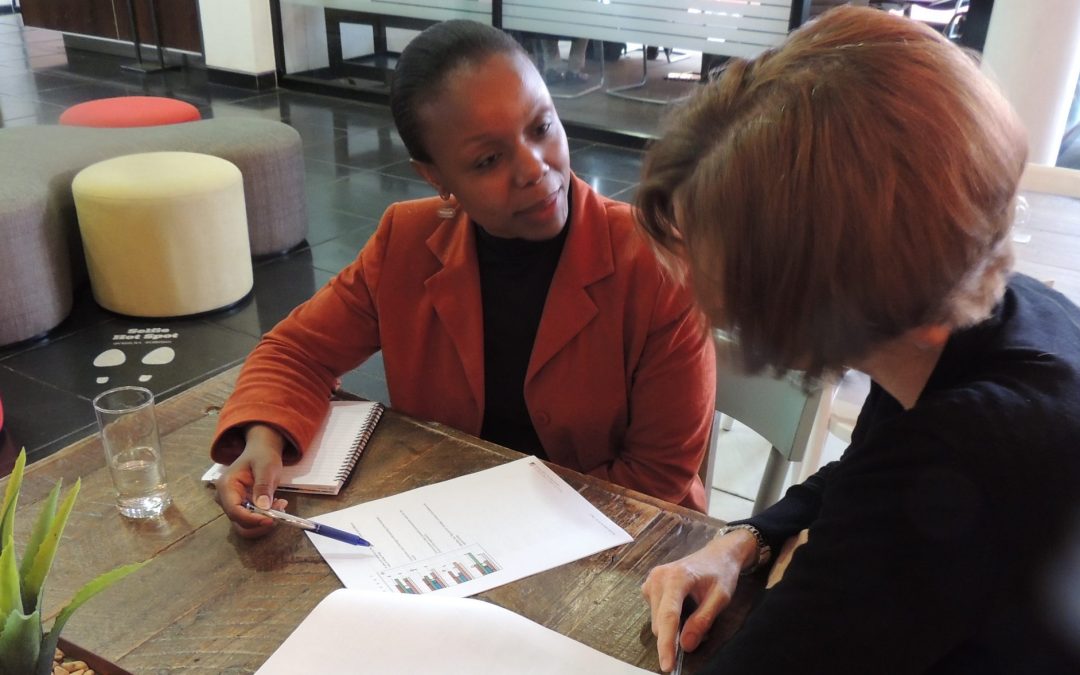There are a number of ways in which 360° assessments, linked with a leadership development programme, can lay the basis for the most effective use of coaching within an organisation.
Firstly, the 360° creates a well-rounded picture, rather than just highlighting “weaknesses”. A 360° report will clearly highlight both areas of strength as well as development areas. This has two benefits in the coaching context.
- The coachee can enter the process with a positive frame of mind. “Hey look, my raters say I have these well-developed leadership qualities, and there are behaviours where they rate me higher than I rate myself.” That creates the kind of personal engagement which makes coaching that much more successful.
- Secondly, in highlighting strengths, it gives both the coach and “coachee” insight into how they might address areas which need strengthening.
Example: The “reluctant manager”
One often finds that managers who are rated high for respect, openness and being supportive of others, are rated comparatively lower for conventional management behaviour: setting goals, monitoring progress, holding people accountable, and taking firm action against incompetence or bad behaviour. In coaching it is very helpful to show such managers: “Look, you are highly regarded personally. People like and respect you. They are not suddenly going to turn against you if you insist on them getting the job done well.” From there it can be relatively simple to help the coachee take a series of small steps to become more assertive in their management style, while remaining true to their supportive way of being, which is their strength. (See below)
The 360° report presents participants with a very different proposition. It profiles observable behaviour rather than inferred personality. It tells them: “this is how different groups of raters experience your leadership behaviour”. And it’s quite possible that the people reporting to you have a different view to your colleagues or your manager. That creates an entirely more palatable set of questions. Participants are led to ask not “why am I like that?”, but rather “I wonder why people see me like that?” Or even less threatening: “I wonder why some people see me like that”. A large part of the answer to that question has to be: “They see you like that because of something you are doing.” Which is much less threatening than: “They see you like that because of who you are.”
It is obviously easier to think about doing things differently (if it is important) than it is to think about being someone different.
For example in the case of the “reluctant manager” described above, one can encourage the coachee to start making sure everyone is very clear about their jobs and the expected standards of delivery. One can encourage them to check in with their staff to ensure that they are meeting milestones and to offer support where it is needed (which is different from doing the job themselves.) And, where people are not meeting targets, one can help the coachee see how important it is to deal with the issue immediately, rather than letting things get worse, which just builds anxiety and tension all round.
It should be possible to lead the coachee down this road without them ever having to stray from their respectful and open personality. This is true even if it gets to the point of disciplinary action. Because if every step has been managed and documented up to that point, one is avoiding the “sudden death” scenario that often arises from avoiding the issues rather than confronting them methodically.
This is just one of many ways that a 360° assessment opens the door to constructive coaching aimed at enhancing leadership skills. As a final example: many people are surprised to learn that their colleagues find them closed or unwilling to share ideas. This is not so daunting when that comes as one piece of information amongst many. Practising listening skills or making a point of having coffee with a colleague are simple, unthreatening behaviour changes that coaching can help you implement. It’s much easier than trying not to be an introvert.
A series of behaviour changes implemented slowly over time under the guidance of an experienced and supportive coach can transform how people experience you as a leader. The 360° report can be a very helpful place to start.
Thornhill can help you to develop effective leaders and improve their performance through 360° assessments and feedback coaching.
For more information on Thornhill’s various products and services for all levels within your organisation, please contact us on admin@thornhill.co.za.
Written by Cedric de Beer
[1] That may or may not be true. There is plenty of debate about how much people can change once they are past a certain age. Kegan R and Lahey L: Immunity to Change Harvard Business Review Press, 2009. for a convincing argument that lifelong change and development is possible.

